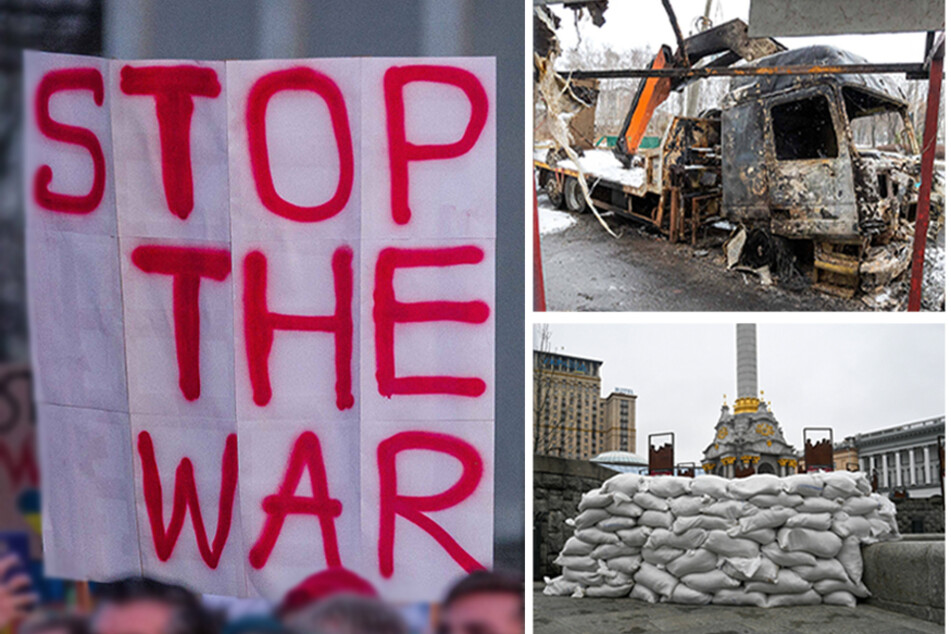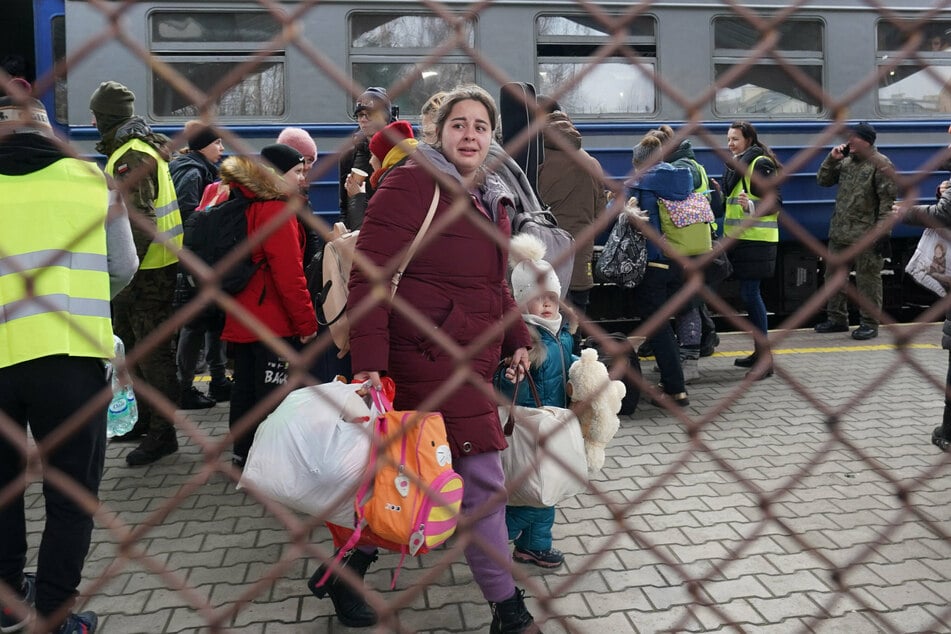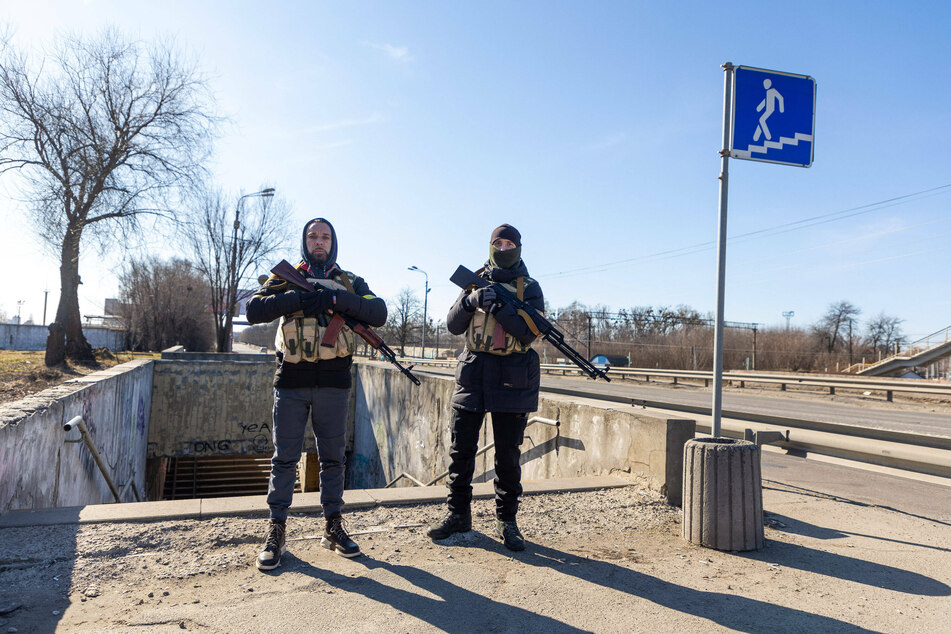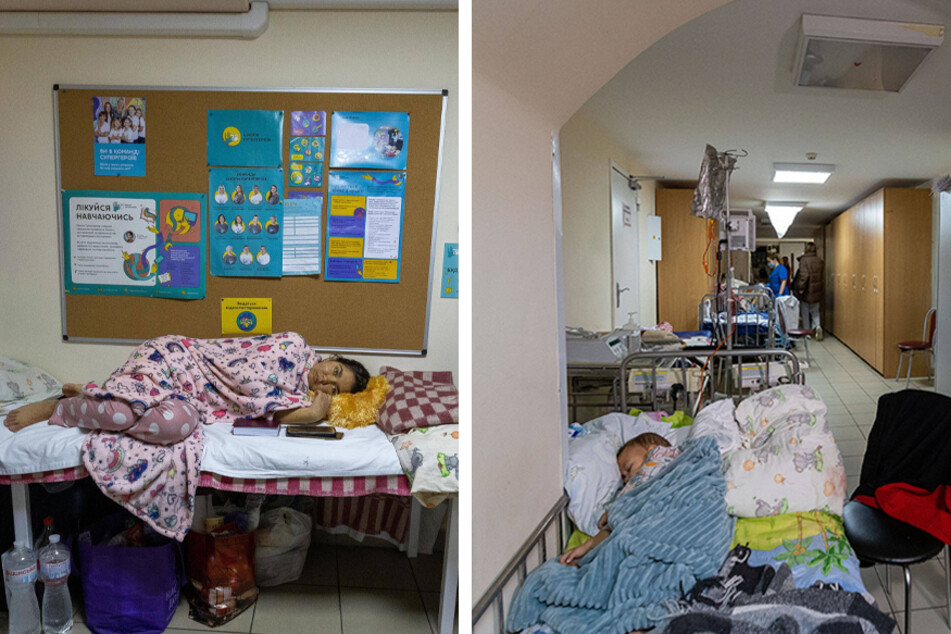"It's a massacre": Ukrainian relays a country in crisis
Austin, Texas – When the Donbas region was attacked by Russian separatist forces in 2014, Diana Kravchenko's parents were in her hometown of Donetsk, Ukraine before fleeing to Kyiv. Now, they've found themselves in the middle of a war zone yet again.

When TAG24 spoke with Kravchenko on Thursday, she made it clear that Russia's current invasion is nothing like that of 2014. In fact, it's much worse.
When Kravchenko left Ukraine in 2012, "Everything was fine," she said.
Two years later, Donetsk was annexed after several Russian separatist attacks, which Kravchenko said "was heartbreaking."
"I basically lost my city, my hometown."
Though she moved to the US in 2014, her parents remained in Ukraine. Not wanting to be a part of a separatist-controlled region, they left the life they knew in Donetsk for Kyiv, and began to rebuild.
Now, the very city they've come to call home has been attacked by Russia, bringing up all-too-familiar feelings and fears they hoped to never encounter again.
"My parents kind of have a little bit more experience," Kravchenko said. "However, everybody who has that experience with what happened in 2014, like, every single person says it was never like [it is today]. It wasn't just like bombing, shelling nonstop," as it is now.
Logistics play a role in seeking refuge

While Kravchenko is now safe in Austin, Texas, she said she can't help the overwhelming feeling of survivor's guilt knowing what her friends, family, and Ukrainians are collectively enduring.
"I don't even know how to describe the amount of pain that is happening to us right now," she said, adding, "It's pretty close to losing a very close relative to you, like a parent.
"Even if you feel like smiling and laughing, it just feels so inappropriate."
Currently, everyone Kravchenko knows in Ukraine is alive, though they're understandably "incredibly tired and scared."
Though many are fleeing to bordering countries like Poland, Kravchenko said many civilians – her parents included – have decided to remain in cities like Kyiv and Kharkiv due to logistics more than anything else.
"Not everybody has a car," she said. "Not everybody can just jump in [one]. Whoever could, in the first couple of days, they did."
Kravchenko's husband's parents, who are also in Ukraine, were able to flee to the Western part of the country, where it seems safest. However, her parents are staying in Kyiv, at least for the time being.
"My Dad, he doesn't feel well. He doesn't feel well, psychologically speaking, as well. He said, 'I just don't want to run once again.'"
"It's a massacre"

Though many civilians are taking a stand against Russian forces "to keep our freedom," Kravchenko mentioned that others, particularly those who endured the attacks in 2014, have said, "We're done. We're not staying in Ukraine anymore. We just can't." It's caused many to try to flee to other countries.
But some, according to Kravchenko, have changed their stance, and are now saying, "We're staying, we're not immigrating. We're going to be rebuilding the country, rebuilding our schools. You know, just bringing all the experience we have from living in other countries and paying it back to our motherland."
In terms of keeping in touch with her friends and family in Ukraine, Kravchenko said she speaks to them twice a day. They're still able to openly communicate and aren't fearful of speaking out.
"They just want everybody to know what's really going on, and it's a massacre," Kravchenko said.
Supporting Ukraine

Being in the US hasn't stopped Kravchenko from helping those in Ukraine any way she can.
Between telling them where to get food and medication, to connecting them to transportation, Kravchenko said, "I'm doing all I can to check on friends and family, and trying to help them as much as we can with the information we can get."
As for what others can do, Kravchenko highlighted well-known organizations such as UNICEF and the Ukrainian Red Cross – who she said "helped tremendously" during the 2014 attacks by providing clothing and food to Ukrainians.
She also noted that it's difficult to provide money directly to those currently in Ukraine, as "they can't buy anything right now."
The most needed items, according to Kravchenko, are sobering: first aid kits and supplies to stop bleeding and treat wounds, baby formula, clothes, non-perishables, medication, and even pet food.
Kravchenko added that those looking for verified information or ways to help can check also check out the Texas Ukrainians website.
Cover photo: Collage: IMAGO/ZUMA Wire & Agencia EFE & Scanpix

